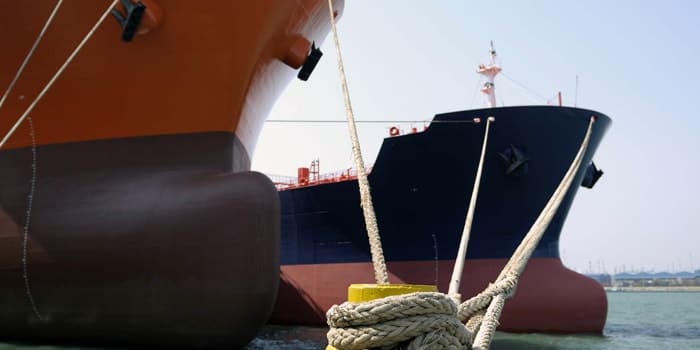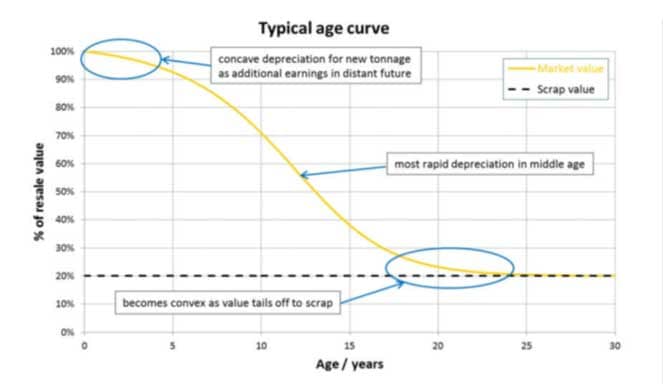Ship’s Condition Inspection Backed Valuation Surveys & Certification

Ship and vessel valuation surveys are considered an important aspect during a vessels life cycle, and are tricky and arduous engagements to accomplish, often requiring a combination of skills including seafaring, financial and statistical capabilities, irrespective of the size and type of the vessel, or the purpose for which the valuation is carried out.
Having completed, to date, over 150 valuation assignments,
Constellation Marine Services are extremely well placed
to offer unparalleled services in this regard, and we remain
unbiased, independent, and objective in our findings and
results.
While we understand the underlying objective of a valuation
survey is to arrive at an assets Fair Market Value, we also
believe there is more than one approach in arriving at this,
and therefore we utilize an accepted and systematic approach
combined with a standard mechanism to determine the value
of the ship or vessel.
This is particularly true when the factors affecting
a ships value are considered, including but not limited
to Market conditions, sentiments, supply and demand statistics,
age and remaining economic useful life of the vessel being
valued, design specifications, and last but not the least,
the vessels maintenance, upkeep and performance.
For sale and purchase, and those that include willing buyers
and sellers, this model adds considerable support to their
decision making, and generally removes ambiguities and assumptions
that would otherwise arise due to the asset not physically
inspected, including assurances that the value will remain
same post a specific date of the valuation.
Contrary to popular belief, ships can be valued at any
stage of their life cycle, including New Buildings, for
ships in operation, for ships in pre contract stage, during
refurbishment and upgrading or during their end of life
cycle such as demolition.
The valuation process involves numerous stages, and generally
starts with receipt of client’s information, and may often
lead to either a desktop valuation, or proceed to a physical
condition survey including an onboard assessment of the
condition of the vessel.
The process will then progress to a Market study and
data collection of a price idea, analysis and calculation
of the vessels useful remaining economic life, to arrive
at a fair market estimation, further to which an analysis
of replacement cost and sale comparison is made to determine
the vessels value reconciliation.
A physical evaluation of the condition itself has numerous
stages, including the vessels overall examination of its
hull structure, fittings, machinery, class and statutory
status etc, with a perspective to gauge their availability,
functionality and maintenance condition, and thereafter
summarize and finalize the physical condition survey findings
for the benefit of the valuator.
An evaluation thereafter is made for Market indicators
such as Spending / Capex availability, asset utilization,
freight, and charter rates to determine operability, statistics
on situation for new orders and scraping (supply and demand)
etc.
An assessment thereafter is made with regards to the vessels
effective age and economic useful life, where factors such
as comparison with an asset of like kind, the duration of
profitable use, the assets overhaul and rebuild status.
Comparisons to typical vessel age curves is thereafter evaluated, and historically compared with those populated by industry leaders, such as the one from EXIM bank extracted for the year 2019, appended below, as an example:

In certain cases, and as for specific purpose vessels, a Sales Comparison approach may also be considered, where simply put, the value of the asset may be determined by analyzing recent 2nd hand sales (offered sales prices) that are similar in nature and type to the asset being valued. This methodology provides a value overview for “specialized crafts” such as high-speed passenger ferries, dynamic positioned offshore assets, diving support vessels, specialized chemical, and gas carrier vessels.
The process thereafter arrives and culminates to the value reconciliation stage, where comparisons and gaps (if any) between the various approaches are made reliable by either seeking more data on the vessel or the adopted approach, or if the gap is narrow, considered less uncertain to state a Fair Market value. A standard market accepted Statement or certificate of Valuation is thereafter issued, with stated emphasis on the valuation date.
The process thereafter arrives and culminates to the
value reconciliation stage, where comparisons and gaps (if
any) between the various approaches are made reliable by
either seeking more data on the vessel or the adopted approach,
or if the gap is narrow, considered less uncertain to state
a Fair Market value.
A standard market accepted Statement or certificate of Valuation
is thereafter issued, with stated emphasis on the valuation
date.
Constellation Marine services can be contacted at any time for your valuation needs and we would be more than happy to provide a service that we are certain will meet and exceed your expectations by our team of Chief Engineers, Master Mariners, and Naval Architects.
Constellation Marine services can provide an unbiased valuation service, may it be for sale & purchase, security or mortgage, court sales and legal disputes or for Insurance and risk underwriting, through in house proprietary resources that include Chartered engineers & Valuators, Naval architects, Marine Chief engineers and Master Mariners.


